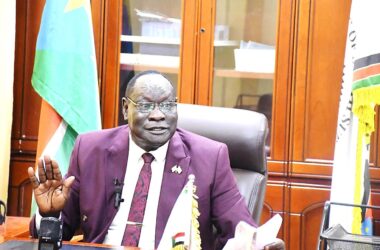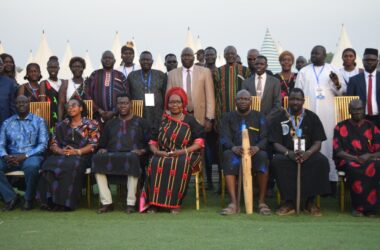By Kei Emmanuel Duku
The Reconstituted Joint Monitoring and Evaluation Commission (RJMEC) has warned that South Sudan’s humanitarian crisis is rapidly escalating toward a “possible full-scale food and nutrition catastrophe,” driven by soaring conflict and a sharp rise in violence against aid workers.
According to a report released yesterday, RJMEC noted that from July to September this year, the political situation in the country continued to exacerbate humanitarian conditions, with persistent insecurity and conflict creating significant new displacement.
The commission stated that ongoing conflict across parts of the country has critically affected the delivery of relief aid. Access for relief agencies has become severely restricted, highlighted by 70 access incidents reported in September alone during the quarter.
The report detailed that 53 of the 70 September incidents involved direct violence against humanitarian staff, assets, and facilities. Upper Nile, Jonglei, Central Equatoria, and Unity States were identified as the primary hotspots for these attacks.
In Unity State, an attack by armed youth resulted in the death of one aid worker and injuries to two others, alongside the looting of relief supplies. Additionally, Jonglei State saw numerous serious security breaches, including SSPDF forces looting 18 metric tons of food and the vandalism of five health and nutrition facilities in Pigi Canal County.
“Alleged airstrikes and ground confrontations in areas like Nasir, Ulang, Longochuk, and Panyikang in Upper Nile and Canal Pigi and Fangak in Jonglei have severely restricted aid delivery to thousands of food-insecure displaced people,” the report stated. It added that areas east of Nasir Town have remained inaccessible for over six months.
Furthermore, beyond direct violence, humanitarian operations faced major constraints from bureaucratic hurdles and climate shocks. In Canal Pigi, the County Commissioner suspended aid operations in opposition-held areas, cutting off services for over 15,000 vulnerable people. Other reported impediments included fees for recruitment advertisements in Renk County and paid permits for airport vehicle access in Malakal.
Flash floods and impassable roads across Jonglei, Upper Nile, and Unity States also hampered mobility, forcing the closure of schools and primary health care units and damaging aid compounds.
RJMEC is urgently calling for the restoration of humanitarian access in conflict-affected areas to avert the looming catastrophe. The body also stressed that the Revitalized Transitional Government of National Unity (RTGoNU) must demonstrate its commitment to providing essential services and creating long-term stability.
The primary drivers of conflict affecting civilians during the period were persistent intra/inter-communal violence predominantly in Warrap followed by Jonglei State—and increased attacks on civilians by conventional parties and other armed groups, particularly in Central Equatoria, Jonglei, Unity, and Western Equatoria.



